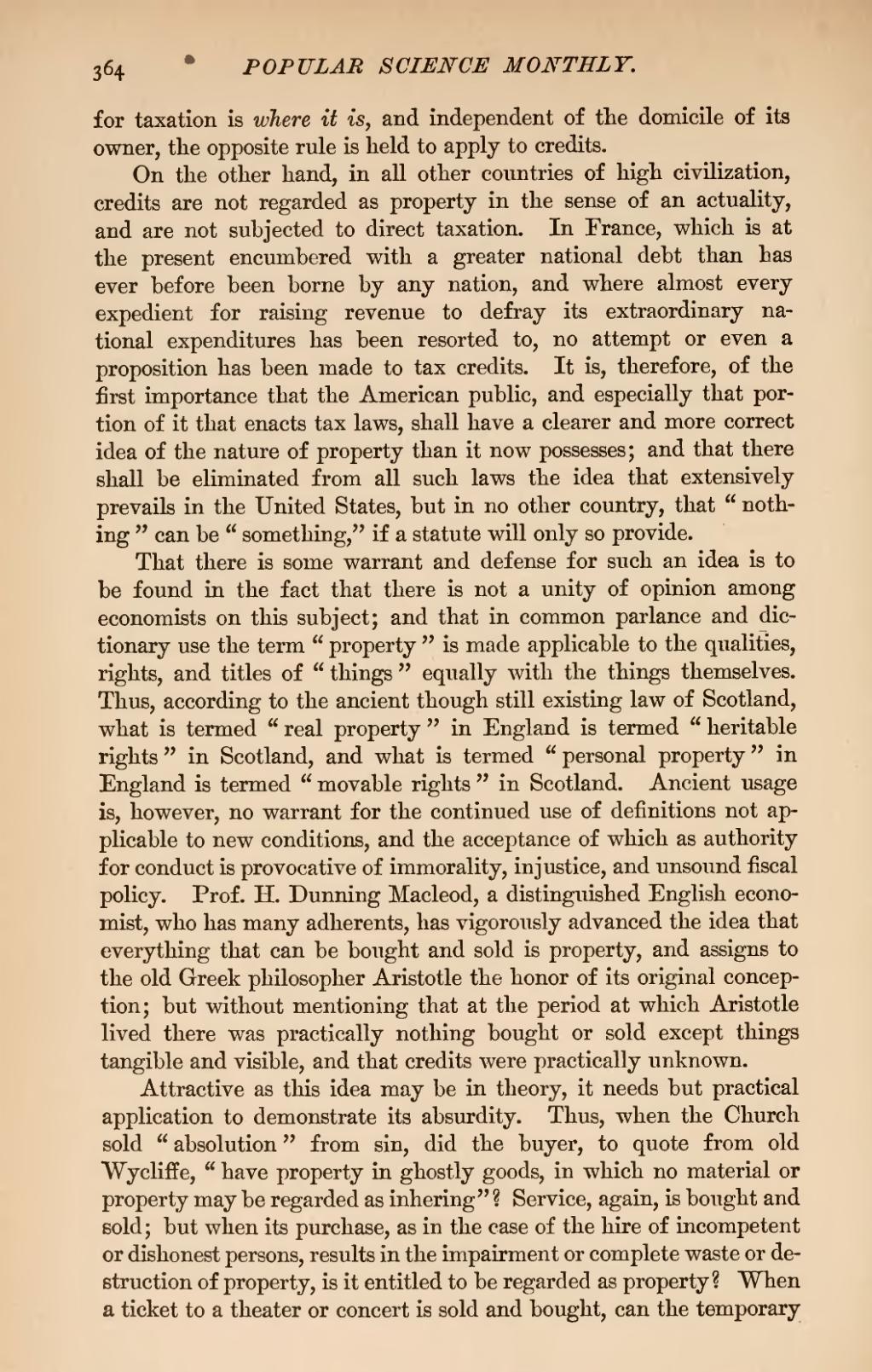for taxation is where it is, and independent of the domicile of its owner, the opposite rule is held to apply to credits.
On the other hand, in all other countries of high civilization, credits are not regarded as property in the sense of an actuality, and are not subjected to direct taxation. In France, which is at the present encumbered with a greater national debt than has ever before been borne by any nation, and where almost every expedient for raising revenue to defray its extraordinary national expenditures has been resorted to, no attempt or even a proposition has been made to tax credits. It is, therefore, of the first importance that the American public, and especially that portion of it that enacts tax laws, shall have a clearer and more correct idea of the nature of property than it now possesses; and that there shall be eliminated from all such laws the idea that extensively prevails in the United States, but in no other country, that "nothing" can be "something," if a statute will only so provide.
That there is some warrant and defense for such an idea is to be found in the fact that there is not a unity of opinion among economists on this subject; and that in common parlance and dictionary use the term "property" is made applicable to the qualities, rights, and titles of "things" equally with the things themselves. Thus, according to the ancient though still existing law of Scotland, what is termed "real property" in England is termed "heritable rights" in Scotland, and what is termed "personal property" in England is termed "movable rights" in Scotland. Ancient usage is, however, no warrant for the continued use of definitions not applicable to new conditions, and the acceptance of which as authority for conduct is provocative of immorality, injustice, and unsound fiscal policy. Prof. H. Dunning Macleod, a distinguished English economist, who has many adherents, has vigorously advanced the idea that everything that can be bought and sold is property, and assigns to the old Greek philosopher Aristotle the honor of its original conception; but without mentioning that at the period at which Aristotle lived there was practically nothing bought or sold except things tangible and visible, and that credits were practically unknown.
Attractive as this idea may be in theory, it needs but practical application to demonstrate its absurdity. Thus, when the Church sold "absolution" from sin, did the buyer, to quote from old Wycliffe, "have property in ghostly goods, in which no material or property may be regarded as inhering"? Service, again, is bought and sold; but when its purchase, as in the case of the hire of incompetent or dishonest persons, results in the impairment or complete waste or destruction of property, is it entitled to be regarded as property? When a ticket to a theater or concert is sold and bought, can the temporary

